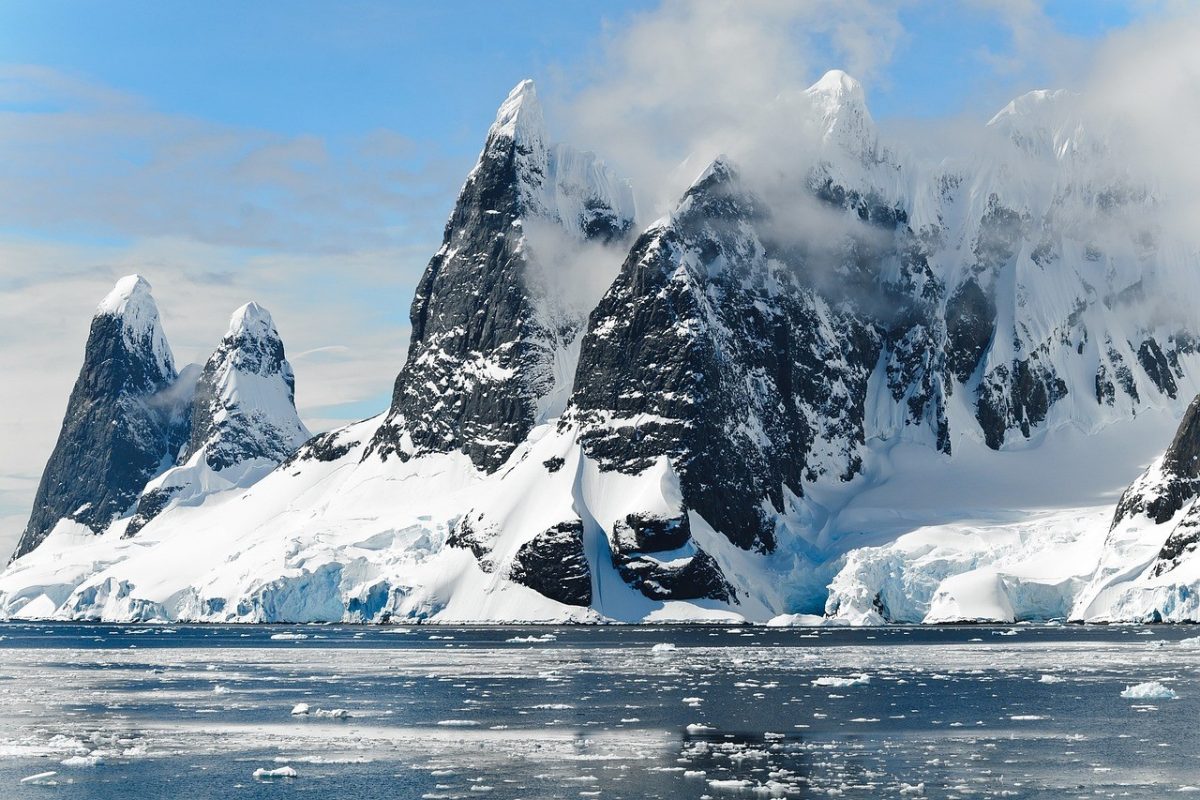A newly declassified US intelligence assessment this week indicates that Russia has lost 315,000 troops to injuries or death out of its 360,000 ground troops since invading Ukraine. Despite the huge blow, which also includes the loss of 2,200 of its 3,500 tanks, Moscow is pushing forward on another front.
As the cold of winter sets in across the northern hemisphere, analysts in Washington are reexamining Russia’s ambitious plans in the Arctic. In recent years President Vladimir Putin has set his sights on claiming large swaths of Artic territory. With the US failing to ratify the Law of the Sea (LOS) treaty, Washington has had no seat at the table, and little say over Russia’s actions. Due to the lack of American push back, the international community is beginning to recognize Russia’s territorial claims. This should give Western nations great concern even as Russia temporarily constrains some of its Arctic activities.
There is some short-term, good news from the Far North. Putin’s war in Ukraine is forcing him to increasingly shift financial resources away from his Arctic goals. The strain is hampering the pace of the Kremlin’s future political and economic plans in the region, according to Paul Goble of the Jamestown Foundation. He says, “The Russian government can no longer afford the land-or sea-based infrastructure it needs to strengthen its territorial claims and struggles to source critical components for Arctic shipping and the development of natural resources there.” All of the Arctic littoral states are now members of the North Atlantic Treaty Organization (NATO) and no longer neutral nations.
Beijing is not a dependent source of resources for Moscow this year, as Xi Jinping and the CCP are facing their own domestic economic challenges. The Chinese leadership also recognizes that aiding Russia will further alienate the West at a time of historically high tensions since 1948.
Moscow appears to be increasingly concerned that other states may also challenge its position in the Arctic. Since the full-scale invasion of Ukraine, Putin has attempted to shore up Russia’s territorial claims in the High North, especially to the Arctic seabed. The UN Commission on the Limits of the Continental shelf (CLCS) reviewed and accepted most of Moscow’s claims and acknowledged the Arctic states can use existing technology to claim the seabed, almost two weeks before Putin’s February 2022 invasion.
“The new reality,” according to Goble, is that it allows “Canada, Denmark, and Greenland to make similar submissions and means that a final decision on Artic territorial claims remains a distant dream.”
The US -Russian border along the Arctic Ocean and the underlying seabed are guided by a 1990 agreement since the US has signed, but not ratified, the more recent LOS treaty.
In mid-April 2021, the Kremlin reported Putin gave two speeches, one to the Russian parliament and another to the influential Russian Geographical Society, in which he called for the launch of Russian development of the High North. In them he noted that new Arctic transportation networks were needed to support the Northern Sea Route. Goble says this is a key policy goal for the Russian president as he intends to develop the region’s expansive oil and gas reserves. While Moscow’s Arctic energy plan has slowed due to the war in Ukraine, it is not entirely dead although some programs including several military-related projects, are on hold as many Russians are leaving the High North. Goble points out, “these obstacles have pushed some in Moscow to argue that Russia must press its case in the Arctic by acting unilaterally and militarily rather than prioritizing economic development and adhering to international law.”
In June 2022, after increased international isolation from the West and Putin’s failed attempt to create an alternative Arctic grouping of states, Moscow found it also lost its steady backing from Beijing. The Eurasian Daily Monitor’s Ksenia Kirillova reports that China is the dominant partner and in a strong bargaining position now. It is insisting on, and getting, substantial discounts for Russian gas.
Western governments need to evaluate, be guided by, and respond to Russian actions and future plans with due consideration to how Moscow views adherence to international law and conventions. The Russian Fund for the Defense of Investors’ Rights in Foreign States argues that Putin doesn’t need UN approval for its claims. According to the Fund, Russia simply must declare its ownership and employ its military to defend the claims to the Arctic seabed and lands.
The Fund was established by Putin as part of the Ministry of Foreign Affairs to defend Russia’s Arctic claims explicitly and unilaterally. In the future, as the Northern Passage opens to year-round oceanic commercial traffic and new seabed resources are discovered, Putin could use this body to justify conflict in the Arctic against other states staking claims. A former DIA analyst, interviewed on the Vernuccio-Novak Report radio show, noted that when Putin is backed into a corner, as appears to be the case in the Arctic, he is capable of striking out like a cornered snake. The financial and military constraints of the war in Ukraine today may, in the end, make the Russian president a deadlier future opponent in the Arctic.
Daria Novak served in the U.S. State Dept.
